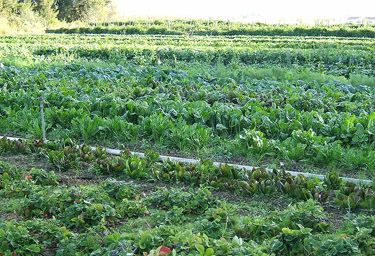What is this bug? I was mowing at Carolyn's place, when I lowered my arm and felt something like sandspurs on my shirt. Nope, it was this thing.
Pictures by John S. Quarterman for Okra Paradise Farms, Lowndes County, Georgia, 1 September 2012.
-jsq
Enjoy it while you can, butterfly, I already bought an innertube.
Pictures by John S. Quarterman for Okra Paradise Farms, Lowndes County, Georgia, 28 August 2012.
-jsq
Beautyberry, Callicarpa americana, proven insect repellant!
Barbara Pleasant wrote for Mother Earth News April/May 2009, Beautyberry Banishes Bad Biting Bugs: Researches are finding evidence that beautyberry, long used as a folk remedy, really does deter bugs such as ants, ticks and others.
In 2006, researchers at the U.S. Department of Agriculture’s Natural
Products Utilization Research Unit in Oxford, Miss., found that extracts from beautyberry leaves could match DEET for repelling mosquitoes. The next year, experiments showed that the active ingredients from the leaves (callicarpenal and intermedeol) provided 100-percent repellency of black-legged ticks for three hours. In 2008, the four-person research team, headed by chemist Charles Cantrell in Mississippi and entomologist Jerome Klun in Maryland, published research that added fire ants to the list of pests repelled by essential oil distilled from beautyberry leaves….
Fresh green leaves, crushed and rubbed on people or pets, often repel insects for a couple of hours.
Looks like Charles L. Cantrell of U. Miss. has published several papers about this:
Continue reading Rob Goldstein writes in Conservation Maven:
Rob Goldstein writes in Conservation Maven:
A new study finds that organic farming promotes biodiversity compared to conventional agricultural practices. While past research has found similar results, this particular study is groundbreaking in that it detected ecological benefits from organic farming at both a local and a landscape level.It’s always good to see research validate what we see on the ground (pun intended).Researchers looked at the uncultivated, semi-natural borders between organic and conventional agricultural fields in Sweden. They found that the borders between organic fields had significantly higher plant species richness and abundance. The researchers hypothesize that this is likely due, at least in part, to the unintentional impact that herbicides can have on non-target species.
This is good news and not just for plants. Increases in plant species diversity likely trickle up the food chain benefiting the insects that eat plants (and the birds that eat insects).